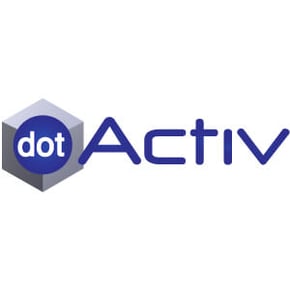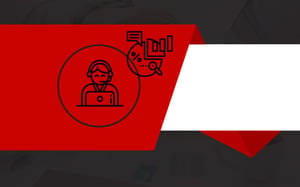Do you want to know what the difference is between retailers who excel and those who fail? It’s simple: those who flourish realise they can’t do everything on their own. They understand they need help and guidance to strengthen the areas where they are weak. More importantly, they seek out specific retail solutions to make their business as efficient as possible.
Of course, that should make sense. In an industry such as retail where competition is high, you need to find a way to differentiate yourself. And that is where retail solutions can help.
What are retail solutions?
Before we continue, it’s essential first to define retail solutions for what it is.
In the context of this piece, whenever we mention it, we’re referring to services, software, hardware or products that a third party provides to you. Or, it could be a mix of any of these four elements. For example, you may want to use both software and services to help improve your bottom line. We'll dig a little deeper into a few solutions worth considering a little later.
As a side note, when it comes to choosing a retail solution for your business, you must ensure it meets all your needs. After all, you shouldn’t pick a solution only because someone told you that you need it.
Instead, you need to look at your retail strategy, see where you are and where you want to be as a business, and then choose the solution that is right for you.
What are the benefits of using retail solutions?
1. You can tap into outside experience
We get it. As a retailer who is passionate about their business, you want to be in control of everything around your business. But, as much as you might want to do that, you also need to face reality. Yes, you might be able to do everything, and you could even succeed. But that success will most likely be short-term. It’s the long-term health of your business that you need to consider.
It is here where a third party can play an important role. And there are a few advantages of tapping into outside experience.
For one, the third party will specialise in the service or software that you need. For example, if you’re looking to install a robust CRM system that can integrate with your data. The risks that come with doing it by yourself means you’re better off going to the expert.
If you’ve done your homework and researched the company properly, you’re usually guaranteed the right type of knowledge and expertise. It’s the type of experience that you can only accumulate by specialising.
More than that, they will have worked with many other companies who’ve needed the same solution in the past. That means that once you have approached them, and told them what you need, they’ll already have a solution to help you.
2. You can offset any associated risks to a third party
The threat of risk is real for any business, regardless of the industry in which you work. Given the competitive nature of retail, where one wrong step can set you back financially, that threat is magnified.
Fortunately, by offsetting any associated risks to a third party - in this case, a retail solutions provider - you can reduce any expected burdens. More importantly, it can give you the confidence to take the risk since you know you’re covered.
Just to note, this particular benefit fits in right next to the above point about bringing in outside experience. By choosing the right solutions provider, you’ve selected a company that has the necessary expertise. And they’ll know exactly how to mitigate problems should there be any.
As for the benefit of risk sharing, by offsetting it, you can focus on what matters to you - strengthening your core business.
3. You’ll have quick and immediate access to resources
Besides the fact that you’ll have access to outside knowledge, and you can offset any risk, there is also the advantage of having access to resources. And immediate access too.
Again, this fits in right next to access to third-party expertise. In fact, it goes hand-in-hand with offsetting any risk too. That’s because by having immediate access, you can mitigate risk.
There is more to it than that, though. By outsourcing a particular need to a third party, let’s say they offer a category management solution as an example, you know that they’ll complete the task faster than if you gave it to someone internally with little to no experience.
Of course, that doesn’t mean that you can’t get one of your staff members to complete the task internally. But, it will take time, which you might not have. It might also cost you more. And then there is the fact that the staff member you picked might be juggling a handful of other tasks and adding this extra one could mean that they're not focusing on your core business.
What are the different retail solutions worth considering?
When it comes to different retail solutions available to you, while there are many out there, there are also three fundamental ones to consider. We have already mentioned one of them in passing above. But here they are again.
The first is your POS system, the second is ERP software, and the third is to use a Category Management solution.
1. Point of Sales solution
POS or your Point of Sales system is, as we’ve mentioned before on this blog, an essential element of any functioning retail business. That’s because, without a POS system in place, you can’t run a profitable business.
As for what makes up a reliable POS system, it’s a combination of hardware and software. The hardware - cash registers, thermal printers, and barcode scanners to name a few - are reasonably straightforward. It’s when it comes to the software that it can get tricky since there is no one-size-fits-all solution.
Fortunately, there are many different options for you, regardless of whether you’re a big or small retailer. It doesn’t need to be the most sophisticated system. You merely need to look at a point of sales solution that works for your business and then implement it.
Looking to get more value from your POS data? It’s worth reading this article, or even downloading our free POS data ebook.
2. ERP solution
Once you have a POS system in place and are collecting the right data, it’s all about ensuring that you have an ERP solution.
What is ERP? Simply put, ERP is short for Enterprise Resource Planning and, as Deskera points out, it refers to “software packages that integrate all the data and the related processes of an organisation”.
Such software is designed to facilitate the optimisation of your internal business processes by aligning all departments. That means that with this type of software in place, you can get a big picture view of your business, seeing the impact that a decision in one part of your business can have on another. For example, in a retail setting, you will be able to see what effect hiring a new employee would have on your stock holding based on budget.
A robust ERP system for retailers includes components around your inventory management, store operations, and even data integration.
3. Category Management solution
The third fundamental retail solution to consider is your category management software. Before we continue, it’s worth pointing out that this software, together with POS and ERP software are all part of a multi-tiered approach, thus providing a complete solution.
That means that you need to have a POS system in place before you can consider integrating your data with your ERP system. Once that’s done, you can integrate your data with category management.
That said, if you’re a small retailer, you could skip the ERP software at first if you want to and integrate your POS data directly with category management software. But that is not the standard or recommended route.
Since the aim of category management is to increase your sales and improve your profitability, not making use of it can put you behind your competition. Like a POS solution, there are also different options, depending on your budget or size.
Also, a category management solution can include either software or services or both, depending on your requirements.
Conclusion
Choosing the right retail solution for your business comes down to two questions. Firstly, what goal do you want to achieve? And, secondly, what solution will provide you with that outcome? Once you have your answer, it’s merely a case of setting everything in place.



